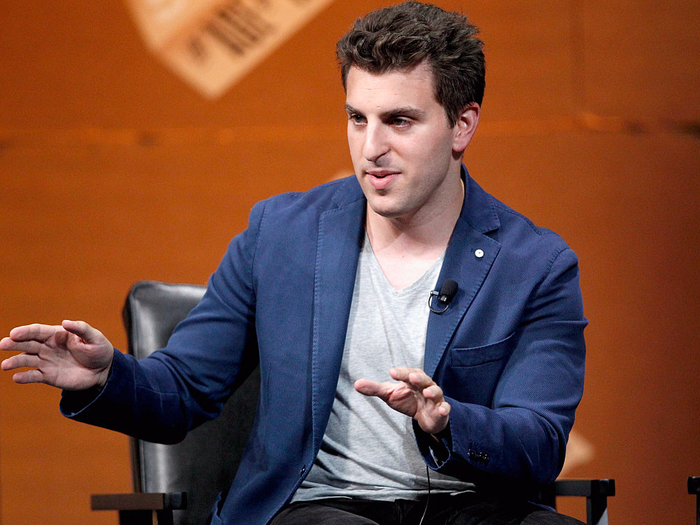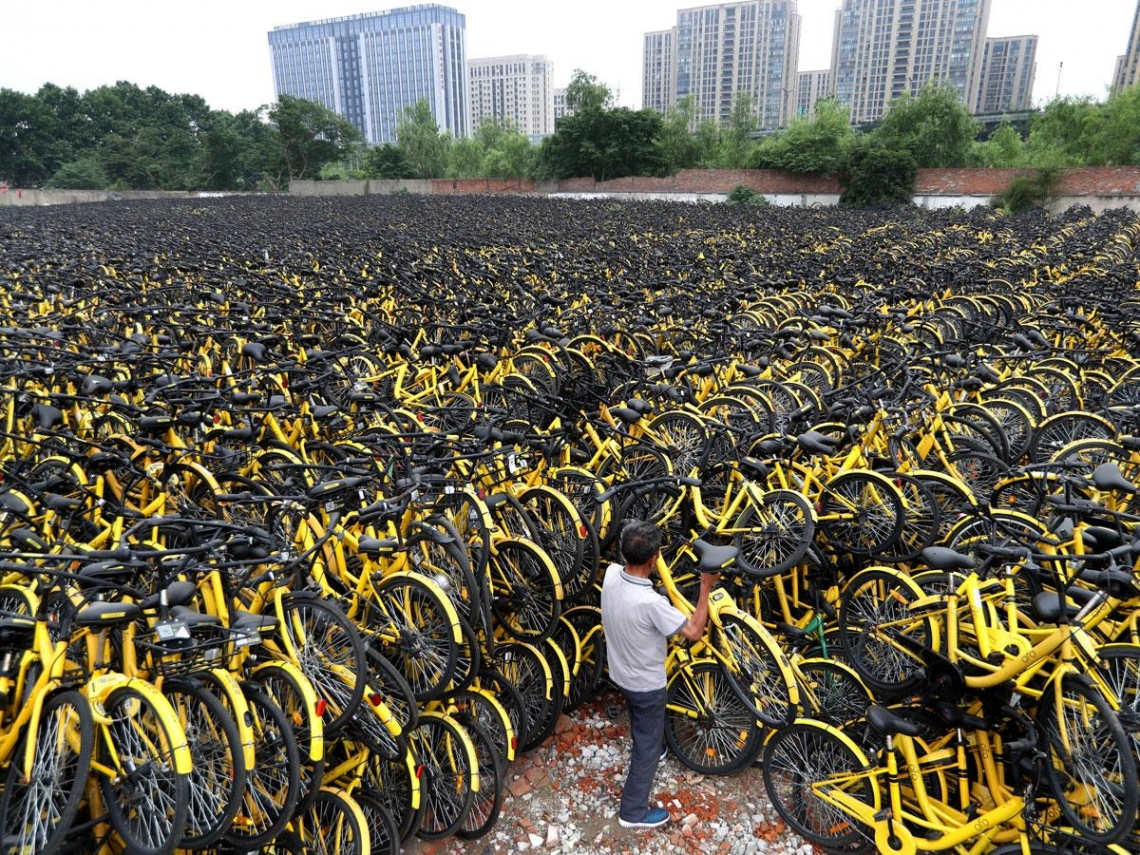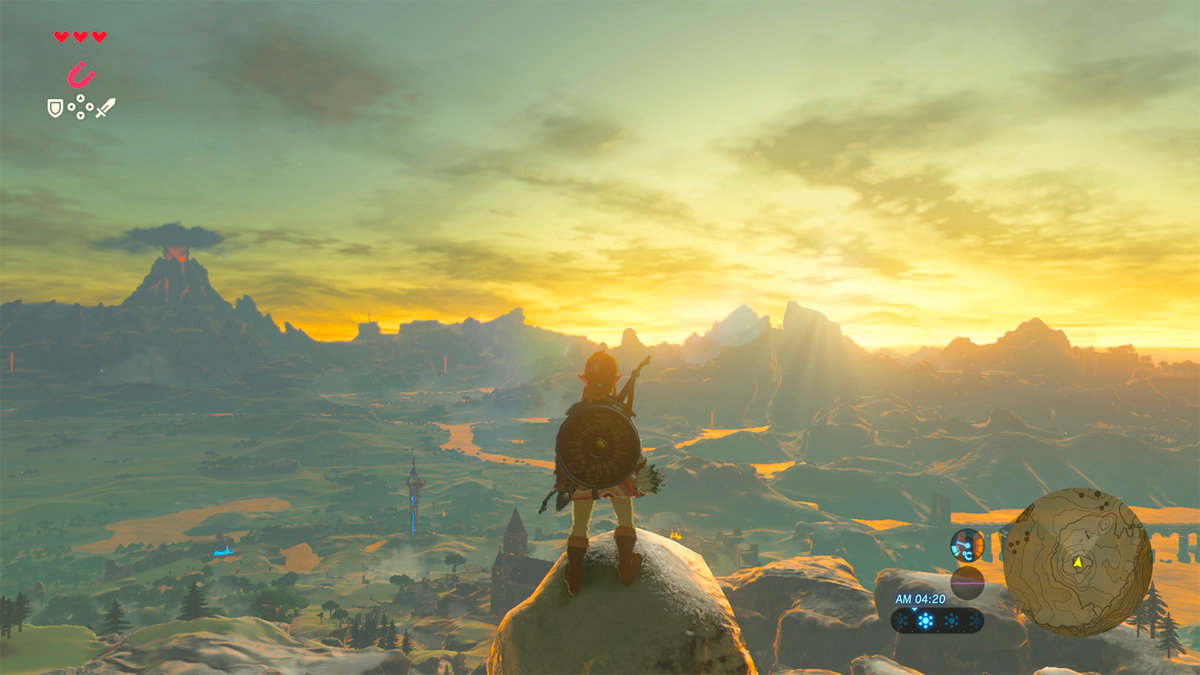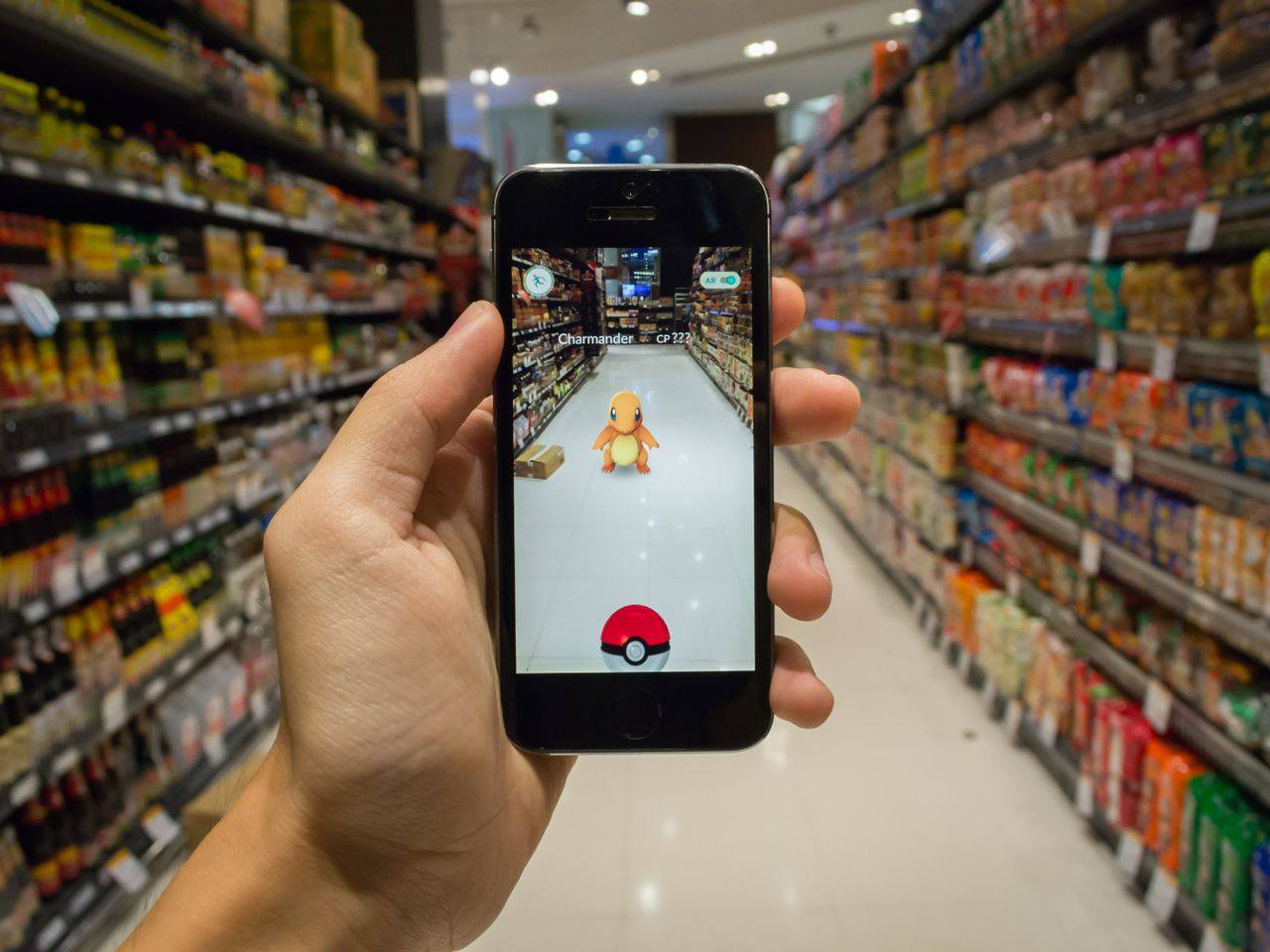
目睹了沉默,决定去 Do more.
Madness aside, what is the metaverse? Why does the blockchain fuel the "metaverse"?
If someone suddenly stands up and tells you:
"I know what the Metaverse is! Let me tell you!"
Please be extra careful: if this person is not a time traveler, he is probably a liar.
But this does not prevent us from having some necessary discussions to analyze a big change in the virtual world that we are experiencing. Because there are some trends that are clear and firm, it can be hyped and called the metaverse today, and it can be called another name tomorrow because of the pursuit of capital.
So, what kind of change are we going through? I hope I can tell you clearly through three levels:
own value
Let me start with a joke:
Ah Hei and Ah Bai, poor brothers sitting at the head of the village talking nonsense.
Ah Hei: I will definitely make a lot of money in the future!
Abai: Really?
Ah Hei: That's a must. If I buy two cars, I'll give you one!
Ah Bai: Ah Hei, you are really my good brother!
Ah Hei: If I have two cows, I will give you one!
Abai: Don't say it, I'm about to cry
Ah Hei: If I have two hoes, I will give you one!
Abai: Great! If you have two bowls, can you give me a bowl?
Ah Hei: That can't be done.
A Bai: Why can't the bowl be used?
Ah Hei: Because my house happens to have two bowls.
It's funny, but this joke is an accurate insight into human nature. There must be more than two cars, two cows, and two hoes in the world, but those distant abstract concepts are of completely different value than the two bowls you really own.
And that's exactly what the online world is going through: the value of owning
An original song can quickly become popular all over the country and be forever remembered by the Internet, but the popularity of the song may have nothing to do with the creator. This is also why at the beginning of the Internet, traditional newspapers, magazines, and the film production industry were very resistant to it. The Internet brought piracy and viral sharing, regardless of whether it was a car, a cow, a hoe, or a bowl. All to share with you.
The internet gave us eternity, but it never wanted us to have it. If there is no property, there will be no personal assets, and there will be no precipitation of value.
I can take the discussion a step further, what is the premise of having?
is exclusivity and scarcity.
If a thing I cannot be sure is yours or mine, then there is no concept of possession. Taking the above joke as an example, if Ah Hei bought Wang Jiaer's album, he downloaded the song and copied the file and shared it with Ah Bai, Ah Hei couldn't tell the difference between the copied file and the original file, Ah Hei At this time, you will question what the meaning of your purchase is, which is exclusivity.
And Ah Hei shared the file with Ah Bai, and found that he could still listen to Wang Jiaer's album without losing anything. It was completely different from the feeling of sharing his precious bowl. Naturally, he would also question why he didn't wait for others to share his songs. ? This is the problem of scarcity.
In fact, the concept of "owning" has long been very mature in the closed game ecology. The reason why players who have worked hard to create magical equipment is very important because of its exclusivity and scarcity, unless game manufacturers deliberately manipulate and modify the mechanism. , so that the equipment you play is worthless (there are really a lot of game manufacturers), your equipment will always be yours, and you will feel the thrill of owning it.
This is why NFT (non-fungible token non-fungible token) technology is so popular today. Although the protection of current laws and regulations is not perfect, and the market is also full of all kinds of counterfeit and shoddy products, it is undeniable that the NFT technology of the blockchain will make a significant contribution to the confirmation of digital goods.
This time, for the first time, the "ownership" of a virtual commodity is in your hands.
The ultimate form of "sharing economy"
In 2008, a teenager named Brian Chesky talked about his entrepreneurial dream on the podium of Y Combinator. His idea was very naive. He hoped to rent your spare sofa bed to backpackers through the Internet. The company is called AirBedandBreakfast.com. It is also better known as Airbnb.

Since Airbnb, the concept of "sharing economy" has been wildly sought after by the capital world, and countless companies under the name of sharing economy have sprung up like mushrooms after a rain. Successes include Uber (Uber) and Didi's car sharing, and failures include bike sharing like Ofo. Now there are shared power banks, shared umbrellas, and even shared books (isn't it a library?).
But when we really think about it calmly, can these once-in-a-lifetime companies really be regarded as "sharing economy"?
Needless to say, there is no sharing of bicycles, shared charging treasures and the like, and the essence is self-operated leasing business. What about Uber Didi? Although they went to defeat the taxi company back then, the boy who killed the dragon became a dragon after all. Now they are more like a monopoly and a cold-blooded taxi company. In addition to not providing vehicles to drivers (Didi actually tried to provide them), what they actually do is a highly centralized taxi management model.

Even Airbnb, the originator of the "sharing economy", originally intended to use the idle resources of the society to create value for the benefit of the society, but now it has become more and more sour. The platform has become a battleground for professional homestay companies. The massive resource consumption of merchants reflects the sharing economy. Nature:
In the end, the sharing economy does not share profits with users, and essentially becomes an intermediary leasing economy.
So, what is the real sharing economy? Is it just a distant fantasy?
It's not a fantasy, the real world already has a mature sharing economy. Stocks are the most mature sharing economy model. A company allows ordinary investors to enter through financing and share the fruits of the company's growth. There is no clearer sharing than this.
But it is clear that the rules of the game for stocks are full of limitations and loopholes. Not every company can be listed, and even if it can, the shares listed will be allocated based on capital, without considering the input of the bottom-level employees who contributed, let alone the initial users who are firmly supported.
Going public even once became the curse of the company. The founders and investors all counted on the company to go public to realize the elapsed time. Once realized, the company will be allowed to drift with the wind. A good enterprise will also be forced to make many choices because of the introduction of capital, resulting in deformed actions, and too much idealism cannot be realized.
This is the area that cryptocurrencies and DAOs (decentralized organizations) are exploring in the blockchain, hoping to use cryptocurrencies to pull the "listing" moment of life and death, from the end of the company to the beginning of the company, and the most important thing is Let the company and users be more deeply bound, because only a good project determines that the tokens in the hands of users can have higher value, and the hardcore users who invest the most can participate in the company's important decisions through DAO, allowing the company to This very traditional form of organization opens up many more possibilities.
It can be said that the spirit of sharing has not disappeared, but has been explored at a deeper level through the rise of blockchain technology, from sharing to co-creation.
The digital world is no longer an appendage of reality!
From its birth in 1989 to the present, the World Wide Web has gradually connected everyone, and will connect all things in the future. What the connection can solve is only the problem of communication. In essence, today's online world is still the projection and auxiliary of the real world, acting as the messenger of the real world.
With the development of the digital world, will at some point, the digital world will become its own independent world?
I believe that for the answer to this question, everyone who loves games has had a vision and experience. Take Nintendo's "The Legend of Zelda: Breath of the Wild" as an example, you will grow and communicate in the game, you will create and experience, and in this world, you can explore infinite possibilities. And these wonderful moments give you a lot of flavor in your life after you get home from get off work. But a game is a game after all. It is a story given to you by the game manufacturer. The moment you turn off the game, the rewards in the game cannot be taken away or used. When you change to the next game, all your efforts will be was sealed.

Will this level of Primordial Wall eventually be broken?
This is unbearable to imagine that one day, an economic system independent of the real world will appear in the digital world, with its own manufacturing industry (creators of NFTs), and its own service industry (advising virtual characters to wear clothes, mining Guidance), will have its own entertainment industry (game club, Sandbox concert), and the participants are no longer just game NPCs but real people. In the process, we trade "currency", create and consume.
In this world, games are only a small part of it (just like the real world), everything you create, digital goods you buy are available to you, you invest time because of your preferences, and because of yourself The investment is obtained to obtain the project Token to participate in the co-construction of the project, and then obtain the corresponding return. At that time, perhaps the real century will instead become an appendage of the virtual world, and instead serve our value in the digital world.
Perhaps the very popular Pokemon Go game back then can give us a glimpse. In Pokemon Go, the real world instead becomes the projection of the virtual world, serving the beauty we build in the virtual world.

Summarize
Now let's go to the question at the beginning of the article, what kind of information revolution are we going through? What will the metaverse be like?
I think the summary made by Shaan Puri, Product Director of Twitch (the world's largest game streaming platform) is accurate. Quoting the translation here:
The metaverse may not be a space, but a "time"
Did you know that in the field of artificial intelligence, there is a concept called "singularity"? It refers to that particular moment in the future when artificial intelligence becomes smarter than humans.
There may also be a moment in the metaverse when our digital lives become more valuable than our physical ones. This is not an overnight shift, but probably a gradual shift over two decades:
It can be roughly estimated that 99% of our attention used to be in the physical world, TV has reduced it to 85%, computers have reduced it to 70%, and smartphones have reduced it to 50%. Throughout the process, our focus has been from the physical world into the digital world. In the future, there will be more technological devices that want to stand in front of our eyes, and even directly open the back door to the brain to lead to the virtual world.
This is not a fantasy, in fact every aspect of our lives is going through this upheaval.
Our work is no longer a factory assembly line, but sitting in front of the computer, facing the fortresses built one by one. Our friends are no longer next door neighbors, but likes in the circle of friends, mutual relations on twitter, Followers and Subscribers. Nowadays, we care more about the circle of friends and the refined selfies in instagram, and we care less about the eyes of others.
Is this a good thing or a bad thing? Like all things, it is neither good nor bad, it is one thing, a very different thing.
And this journey, which may be irreversible, is full of too many possibilities. Liars and idealists will find their own opportunities to shine in the process. Just like the emergence of the Internet, we have once again come to experience the moment when the world changes.
Welcome to share your thoughts and understandings in the "response" area, let's discuss together, I will see it all 🙂
If you like my articles, you are welcome to follow and give support, this will encourage me to share more content, thank you very much🙏
Like my work?
Don't forget to support or like, so I know you are with me..
Comment…